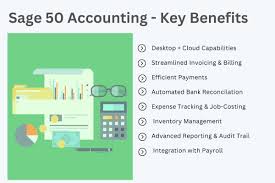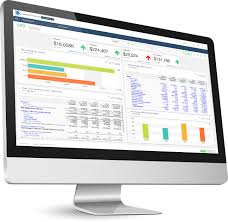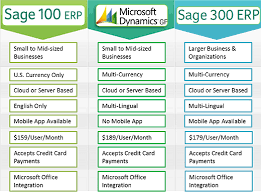
Sage Software has carved a prominent niche in the UK’s business landscape, providing a suite of solutions that cater to various business needs. Its significance cannot be overstated; over the years, Sage has become synonymous with effective financial management, streamlined operations, and enhanced productivity for businesses of all sizes. This article aims to delve deeper into the features, benefits, and overall impact of Sage Software on the UK market. Whether you’re a small business owner or part of a larger corporation, understanding Sage’s offerings can help you leverage its capabilities to your advantage.

At its core, Sage Software is a comprehensive accounting and business management solution designed specifically for small to medium-sized enterprises (SMEs). Founded in 1981 in Newcastle upon Tyne, the company initially focused on developing accounting software, but it has since expanded its offerings to include a variety of business management tools.
Over the years, Sage has evolved significantly. The software has transitioned from simple accounting packages to an extensive suite that includes payroll, HR management, inventory control, and customer relationship management (CRM). This evolution reflects the changing needs of businesses in the UK and around the world, showcasing Sage’s adaptability and commitment to innovation.

Sage Software boasts a plethora of features designed to cater to various business functions. Here’s a closer look at some of its key functionalities:
- Accounting and Financial Management Tools: Sage provides robust accounting capabilities that allow businesses to manage their finances seamlessly. From tracking income and expenses to generating financial reports, the software simplifies the financial management process.
- Payroll and HR Management Capabilities: Managing payroll can be a daunting task for many businesses. Sage’s payroll solutions automate calculations, generate payslips, and ensure compliance with UK employment regulations.
- Inventory Management and Supply Chain Solutions: Sage helps companies keep track of their inventory levels, manage stock efficiently, and streamline supply chain operations, which is crucial in today’s fast-paced market.
- Customer Relationship Management (CRM) Functionalities: Building and maintaining customer relationships is vital for business growth. Sage’s CRM tools enable businesses to manage customer interactions, track sales leads, and analyze customer data to enhance service delivery.
Benefits of Using Sage Software for Businesses

Utilizing Sage Software comes with a host of benefits that can transform the way businesses operate:
- Simplification of Financial Processes: By automating many of the tedious aspects of financial management, Sage allows businesses to focus on strategy and growth. No more drowning in spreadsheets!
- Enhanced Accuracy Through Automation: Manual data entry is prone to errors; Sage minimizes this risk through automation, ensuring that financial records are accurate and up-to-date.
- Scalability for Growing Businesses: As businesses expand, their software needs change. Sage offers scalable solutions that can grow alongside your business, making it a long-term partner.
- Compliance with UK Regulations and Standards: Keeping up with the ever-changing regulatory landscape can be challenging. Sage ensures that its users remain compliant with UK laws, minimizing the risk of penalties.
Industries That Benefit from Sage Software

Sage Software is versatile and can be tailored to meet the specific needs of various industries. Here’s a look at some of the sectors that benefit the most:
- Small Business Sector: For many small businesses, Sage offers an affordable, easy-to-use solution that allows them to manage their finances without the need for extensive accounting knowledge.
- Manufacturing Industry: Sage’s inventory management features are particularly beneficial for manufacturers who need to keep track of raw materials and finished goods efficiently.
- Retail and E-commerce Businesses: With its robust inventory tracking and CRM functionalities, Sage is an excellent choice for retail and e-commerce businesses looking to enhance customer engagement and manage stock levels.
- Professional Services Firms: Accounting firms, legal practices, and consultancy agencies can benefit from Sage’s project management and time tracking features, ensuring they bill clients accurately and on time.

When it comes to software, user experience is paramount. Sage has invested in creating a user-friendly interface that balances ease of use with functionality:
- Overview of User Interface Design: The layout is intuitive, making it relatively easy for users to navigate through its features. However, as with any comprehensive software, there can be a learning curve for new users.
- Customer Support Options Available: Sage offers a variety of support channels, including online resources, community forums, and direct customer service. This ensures that users can find the answers they need when facing challenges.
- Training Opportunities Provided by Sage: To facilitate a smoother onboarding process, Sage provides training modules designed to help new users get acquainted with its software, ensuring they can leverage its full potential.
Comparing Sage Software with Competitors

In a competitive market, it’s essential to understand how Sage measures up against other popular accounting software:
- Brief Comparison with Other Popular Accounting Software: Competitors such as QuickBooks and Xero offer similar functionalities. However, Sage’s extensive suite of integrated features provides a more comprehensive solution for businesses looking to manage various aspects of their operations.
- Unique Selling Points: Sage stands out with its strong emphasis on compliance, scalability, and the depth of its financial management tools, making it a preferred choice for businesses that require robust accounting capabilities.
Case Studies or Success Stories

To truly understand the impact of Sage Software, let’s highlight a few success stories from businesses that have embraced its solutions:
- Case Study 1 – Small Retail Business: A small retail company implemented Sage to manage its inventory and sales processes. As a result, they reported a 30% reduction in stock discrepancies and an overall increase in sales efficiency.
- Case Study 2 – Manufacturing Firm: A mid-sized manufacturer adopted Sage to streamline its production scheduling and inventory management. The firm achieved a 25% increase in production efficiency, demonstrating how effective the software is in optimizing operations.
- Case Study 3 – Professional Services Firm: A consultancy firm utilized Sage’s CRM tools to improve client engagement. They noted a 40% increase in client retention rates, showcasing the software’s ability to enhance customer relationships.
In summary, Sage Software plays a pivotal role in helping businesses across the UK streamline their operations, improve financial management, and enhance customer relationships. Its comprehensive suite of features, coupled with a commitment to compliance and user support, makes it a valuable asset for any business looking to thrive in today’s competitive landscape. As you evaluate software options, consider your specific needs and the unique advantages that Sage can offer to your organization.

